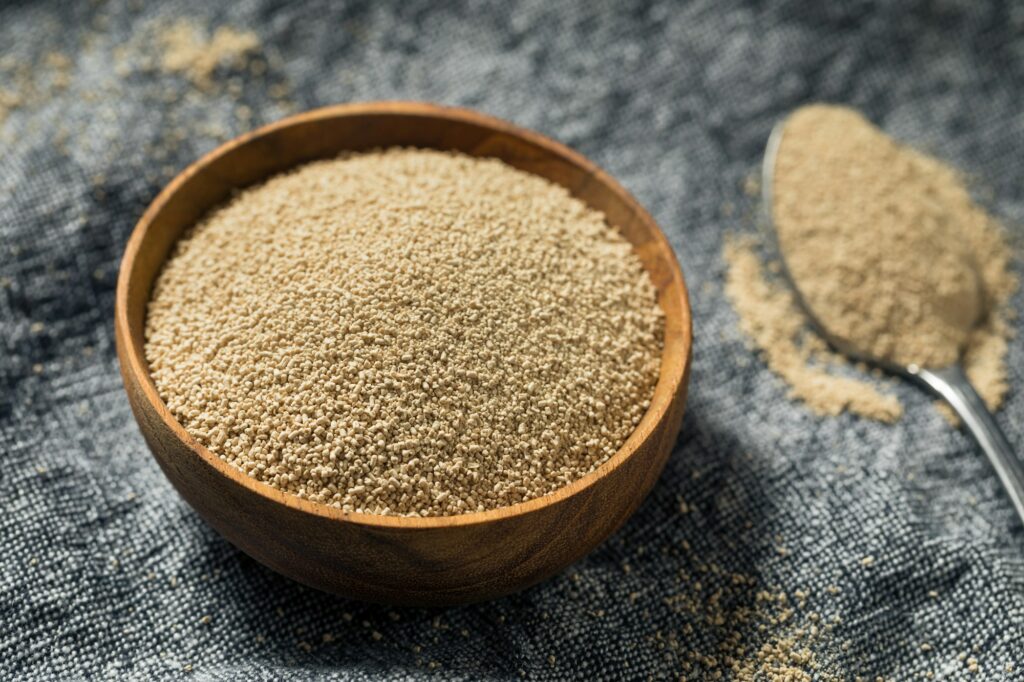Sourdough bread, with its deep flavors and rich history, transcends the simple category of baked goods to become a cultural icon across the globe. Its unique charm lies not just in the taste but in the traditional fermentation process that dates back centuries, making it a staple in various cultures. The benefits of sourdough bread for health are unmatchable. Unlike standard bread varieties, sourdough’s complex ecosystem of wild yeast and lactic acid bacteria offers a multitude of health benefits, alongside its distinctive sour taste. This article aims to unravel the myriad reasons why sourdough is so much better for you, delving into the art and science that makes sourdough an unparalleled choice in the realm of bread.
The Art and Science of Sourdough
At the core of sourdough’s unique appeal is its fermentation process, a delicate dance between wild yeast and lactic acid bacteria. This natural partnership does more than just raise the dough—it endows sourdough with a one-of-a-kind flavor profile and texture that sets it apart from other breads. But the magic of fermentation doesn’t stop at leavening. It serves as a crucial step in pre-digesting the flour’s complex carbohydrates. This vital process leads to:
- A Reduction in Antinutrients: Antinutrients, while naturally occurring, can interfere with the absorption of essential nutrients. The fermentation process significantly reduces their presence in sourdough, enhancing its nutritional profile and digestibility.
- Enhanced Digestibility: By breaking down complex carbohydrates, fermentation makes sourdough bread easier to digest. This benefit is particularly important for those who may experience discomfort or digestive issues from consuming regular bread.
Wild Yeast vs. Commercial Yeast: A Comparative Insight
The comparison between the wild yeast used in sourdough and the commercial yeast found in other bread types highlights the advantages of sourdough’s natural fermentation. Wild yeast, present in the environment, initiates a slower fermentation process that imbues sourdough with several benefits:
- Distinctive Flavor and Texture: The slower fermentation process allows for the development of sourdough’s signature tang and chewy texture, offering a sensory experience that commercial yeast simply can’t replicate.
- Improved Nutrient Availability: This method of fermentation enhances the availability of nutrients in the bread, making it a richer source of vitamins and minerals.
Delving Deeper into Fermentation’s Benefits
- Prebiotic Properties: Sourdough fermentation fosters the growth of beneficial bacteria in the gut, acting as a prebiotic. This not only aids digestion but also supports overall gut health.
- Lower Glycemic Index: Thanks to its unique fermentation process, sourdough typically has a lower glycemic index compared to bread made with commercial yeast. This means it’s less likely to cause a rapid spike in blood sugar levels, making it a healthier option for managing energy and appetite.
- Accessibility for Those with Gluten Sensitivity: While not gluten-free, the breakdown of gluten during sourdough fermentation may make it more tolerable for individuals with non-celiac gluten sensitivity. This is because the process can reduce the quantity of gluten to levels that some people find easier to digest.
- A Rich Source of Vitamins and Minerals: Fermentation increases the content of certain B vitamins, magnesium, and potassium in sourdough bread, contributing to its status as a nutrient-dense food choice.
The Art of Choosing and Making Sourdough
For those intrigued by sourdough’s myriad benefits and eager to integrate it into their diet, here are some tips:
- Selecting the Right Sourdough: Opt for sourdough bread made through traditional fermentation methods to ensure you’re getting all the health benefits discussed. Artisanal bakeries or homemade sourdough are usually your best bet.
- Embracing the Baking Journey: Consider baking your own sourdough bread. This not only allows you to control the ingredients and fermentation process but also offers a rewarding, hands-on experience with this ancient culinary art.
In essence, sourdough’s superiority lies in its complex fermentation process, which transforms simple ingredients into a bread that’s not just delicious but also more nutritious and digestible. Whether you’re a seasoned baker or a curious food enthusiast, the world of sourdough offers a fascinating exploration into the depths of flavor, health, and tradition.
Nutritional Advantages of Sourdough: A Deep Dive
Sourdough bread, renowned for its distinct tang and texture, stands out not just for these sensory qualities but for the profound nutritional benefits it brings to the table. The secret behind sourdough’s health contributions lies in its age-old fermentation process, which transforms simple ingredients into a powerhouse of nutritional and gut health benefits.
Enhancing the Gut Microbiome
- Fermentation’s Probiotic Power: The fermentation that characterizes sourdough production is a natural alchemy that infuses the bread with beneficial bacteria and yeast. These microorganisms are akin to those found in probiotic foods, which are celebrated for their positive impact on gut health.
- Microbiome Diversity for Well-being: Consuming sourdough can help balance the gut microbiome, a key factor not just for optimal digestive health but also for nutrient absorption and mental wellness. A diverse and balanced microbiome is associated with reduced digestive ailments and enhanced mood and cognitive function.
Antioxidant Richness
- Combatting Oxidative Stress: Sourdough’s notable content of antioxidants and phytochemicals, including the peptide lunasin, plays a crucial role in safeguarding the body against oxidative stress and inflammation. These compounds are significantly enhanced through the fermentation process, offering protective benefits against a range of health issues, including chronic diseases and cancer (Trainer Josh).
- Cancer-Preventive Compounds: The presence of specific compounds like lunasin not only underscores sourdough’s potential in preventing oxidative damage but also highlights its role in cancer prevention strategies.
Mineral Bioavailability
- Breaking Down Barriers to Nutrition: One of the most remarkable feats of sourdough fermentation is its ability to break down phytic acid, an antinutrient that can hinder the absorption of essential minerals such as magnesium and phosphorus. This breakdown process enhances the bioavailability of these minerals, ensuring they are more readily absorbed by the body (Trainer Josh, Real Plans).
- A Gateway to Enhanced Nutrition: By reducing the phytic acid content, sourdough makes it easier for the body to access and utilize vital nutrients, supporting overall health and well-being.
The Sourdough Advantage: A Closer Look
The fermentation process inherent to sourdough production is not just about leavening bread—it’s a complex biochemical transformation that elevates the nutritional profile of what might otherwise be a simple loaf into something far more beneficial. Here’s how:
- Gut Health and Beyond: The lactic acid bacteria that flourish during sourdough fermentation contribute to a rich probiotic profile. This enhances the gut microbiome, laying the foundation for improved digestive health, better nutrient absorption, and even mental health benefits.
- A Shield Against Disease: The antioxidants and anti-inflammatory compounds generated through fermentation provide a protective shield against a multitude of health issues, including oxidative stress, inflammation, and potentially even cancer.
- Unlocking Nutritional Wealth: The fermentation process’s ability to neutralize phytic acid transforms sourdough bread into a more nutritious option, unlocking minerals that are essential for health but often bound and inaccessible in other bread types.
Sourdough and Digestive Wellness
Easing Gluten Sensitivity
Sourdough’s fermentation process notably eases the burden of gluten sensitivity. This bread’s unique preparation involves a prolonged fermentation period that significantly breaks down gluten into amino acids, making it easier for individuals with gluten sensitivities to digest (Trainer Josh). While not entirely gluten-free, sourdough is a more digestible option than other breads, potentially reducing bloating, gas, and other discomforts associated with gluten.
The Role of Prebiotics
The benefits of sourdough extend to enhancing digestive health through its role as a prebiotic. The fermentation process enriches sourdough with beneficial bacteria, contributing to a balanced gut microbiome. This balance is essential for optimal digestive health, nutrient absorption, and even boosting the immune system (Frugal Florida Mom). Consuming sourdough can help maintain a healthy gut environment, promoting overall wellness.
Sourdough and Chronic Disease Prevention
Stabilizing Blood Sugar
One of the remarkable health benefits of sourdough is its ability to stabilize blood sugar levels. Unlike white bread, which can cause rapid spikes in blood sugar, sourdough’s lower glycemic index results in a slower, more gradual increase. This attribute is crucial for preventing insulin spikes and managing conditions like diabetes. The acetic and lactic acids produced during sourdough’s fermentation process reduce the glycemic response, supporting blood sugar management.
Heart Health and Sourdough
Sourdough also offers cardiovascular benefits, particularly for individuals with sensitivities to wheat. Its unique fermentation process not only eases digestion but may also contribute to reducing inflammation, a key factor in heart health. By potentially lowering inflammation and supporting weight management, sourdough bread emerges as a heart-healthy option (Frugal Florida Mom).
Culinary Delights: The Versatility of Sourdough
Beyond Bread: Creative Uses of Sourdough
Sourdough’s culinary applications extend far beyond traditional bread. Its unique tang and texture make it ideal for a variety of dishes, from savory toasts and sandwiches to innovative desserts and snacks. The versatility of sourdough allows it to be a staple ingredient in kitchens, encouraging creativity and exploration in baking and cooking.
Home Baking Tips for Beginners
For those new to sourdough baking, starting with a simple, mostly no-knead recipe can demystify the process. The key to successful sourdough baking lies in understanding the importance of the starter and the fermentation time, allowing the dough to develop its flavors and textures slowly. This approach not only simplifies the baking process but also yields delicious and healthful results.
Sourdough’s Environmental Edge
Sustainability in Baking
Sourdough baking emphasizes sustainability, from its minimal energy consumption to its simple, natural ingredients. The process of making sourdough at home or purchasing it from artisanal bakers who use locally sourced, organic flour supports sustainable agricultural practices and reduces the carbon footprint associated with commercial bread production.
The Zero-Waste Potential of Sourdough
The zero-waste movement finds a friend in sourdough baking. The use of sourdough discard in recipes like pancakes, crackers, and cakes minimizes food waste while maximizing flavor. This practice not only encourages more sustainable cooking habits but also showcases the adaptability and efficiency of sourdough as an ingredient.
This detailed exploration into the world of sourdough highlights its health benefits, culinary versatility, and environmental advantages. Through its unique fermentation process, sourdough offers improved digestibility, chronic disease prevention, and a host of nutritional benefits, making it a superior choice for bread enthusiasts and health-conscious individuals alike.
Mental and Emotional Well-being
The Therapeutic Nature of Baking
Sourdough baking transcends the simple act of preparing food, venturing into the realm of mindfulness and therapeutic practice. The process of creating sourdough, from nurturing the starter to shaping the dough, requires patience, precision, and presence. This mindful engagement offers a meditative quality, as bakers become immersed in the tactile experience, fostering a sense of calm and reducing stress. The act of baking sourdough, with its slow, deliberate steps, encourages individuals to slow down and appreciate the moment, contributing positively to mental health.
Community and Connection Through Sourdough
Sourdough baking has a unique ability to foster community and connection. The tradition of sharing sourdough starters among friends, family, and even strangers serves as a tangible link between people, passing on a piece of history and culture. This sharing culture not only spreads the joy of sourdough baking but also strengthens bonds within communities, as people come together to share tips, recipes, and the fruits of their labor. Sourdough, therefore, becomes more than just bread; it’s a medium for building relationships and celebrating shared culinary heritage.
FAQs: Sourdough Bread for Health
In this section, we address some common questions related to sourdough and its myriad benefits:
Q: Can sourdough bread help with weight management?
A: Yes, sourdough’s lower glycemic index and higher satiety level can aid in weight management by stabilizing blood sugar levels and reducing overeating.
Q: Is sourdough bread good for people with gluten sensitivity?
A: Sourdough bread, through its fermentation process, breaks down a significant amount of gluten, making it easier to digest for some people with gluten sensitivity. However, it is not suitable for individuals with celiac disease.
Q: How does sourdough contribute to gut health?
A: The fermentation process enriches sourdough with probiotics and prebiotics, fostering a healthy gut microbiome, which is crucial for digestive health and overall well-being.
Q: Why is sourdough considered environmentally friendly?
A: Sourdough’s simple ingredients and traditional baking methods emphasize sustainability and minimal waste, aligning with eco-friendly practices.
Conclusion: Sourdough Bread for Health and More
Sourdough bread embodies a blend of art, science, and tradition, offering a plethora of benefits that extend beyond its nutritional value. Its impact on digestive wellness, chronic disease prevention, mental health, and environmental sustainability underscores why sourdough is much more than just bread. Whether you’re drawn to sourdough for its health advantages, its rich flavor profile, or its role in fostering community, it’s clear that this ancient bread variety holds a special place in the hearts and kitchens of many. Through its intricate fermentation process and the love and care imbued in each loaf, sourdough continues to nourish bodies, minds, and spirits, proving why it is indeed so much better for you.
This exploration into the multifaceted benefits of sourdough aims to enlighten and inspire, encouraging both seasoned bakers and novices alike to embrace the sourdough tradition and discover the joy and well-being it can bring into their lives.



